
Chris Koch is quick to break the ice with a joke, a trait developed decades ago by a man born without arms and legs.
At an airport, speaking to a gate attendant might go something like this:
Gate attendant: Is there anything we can do to help you out?
Chris: Yeah! I could use a seat with lots of legroom!
Or, when speaking at a conference, he might offer this:
Chris: I should start off my presentation by addressing the very obvious elephant in the room. You can clearly see that my right ear is a little bit bigger than my left ear. I know it detracts from a lot of the other things about me.
Or sometimes, when he’s on a two-hour boat ride off the coast of Australia to dive with great white sharks, he’ll chime in to the rest of the tourists:
This is actually my second time shark-cage diving. My first time didn’t go so well. I’m back to face my fears.
His deadpanned approach often leads people to question, “Is he serious?” Chris then lets loose a smile and a belly laugh that shatters the awkwardness in the room.
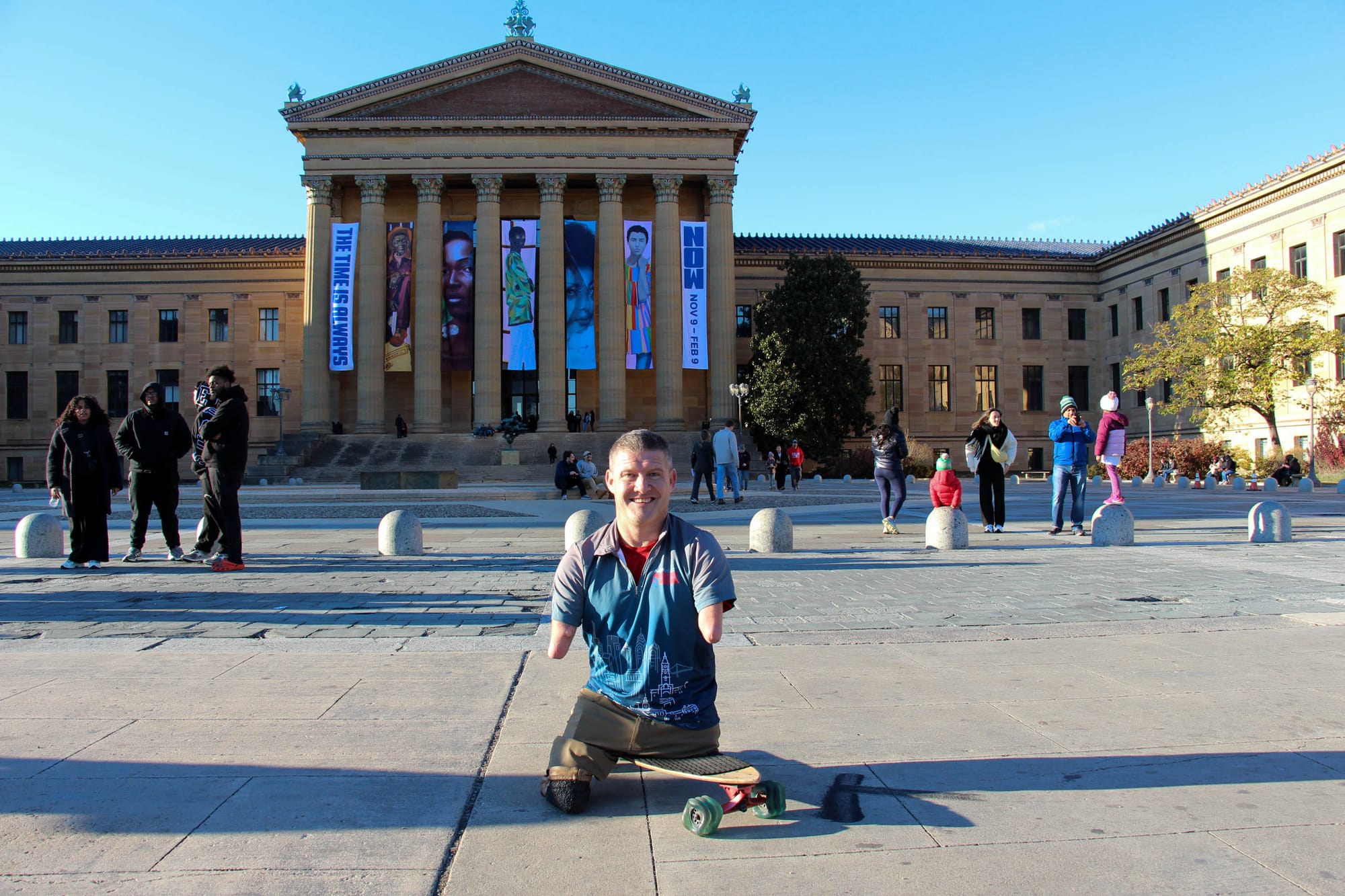
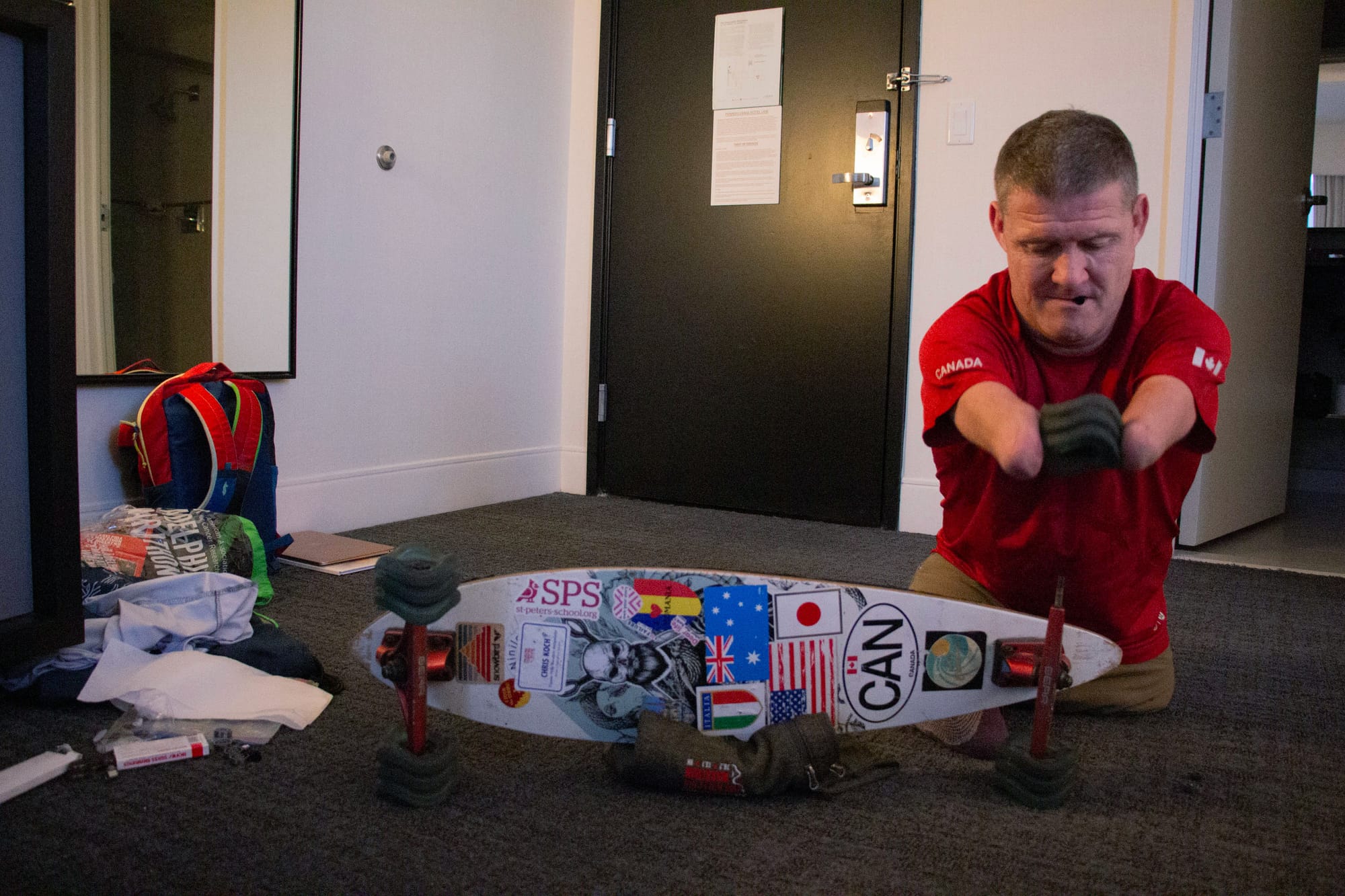
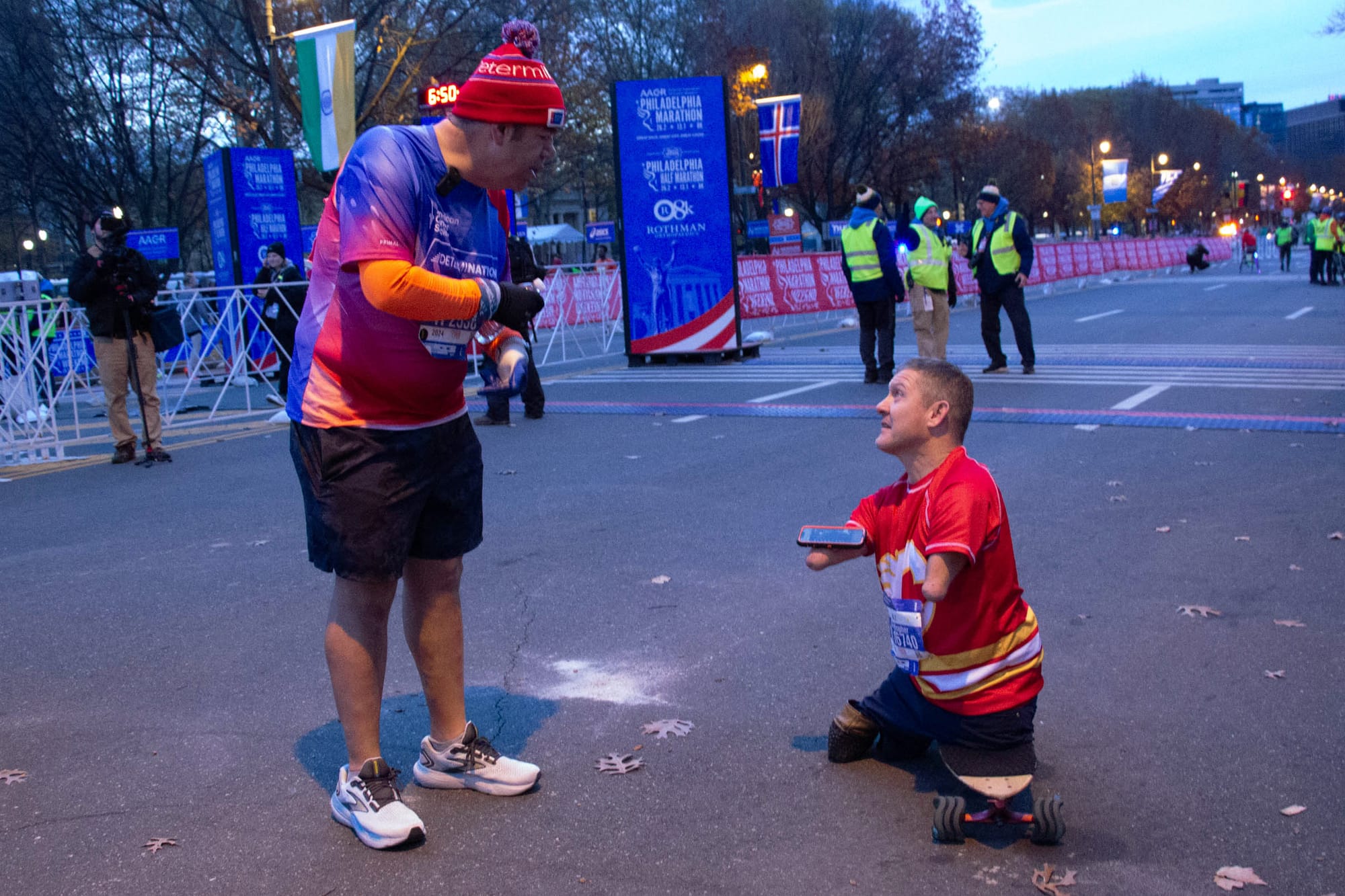
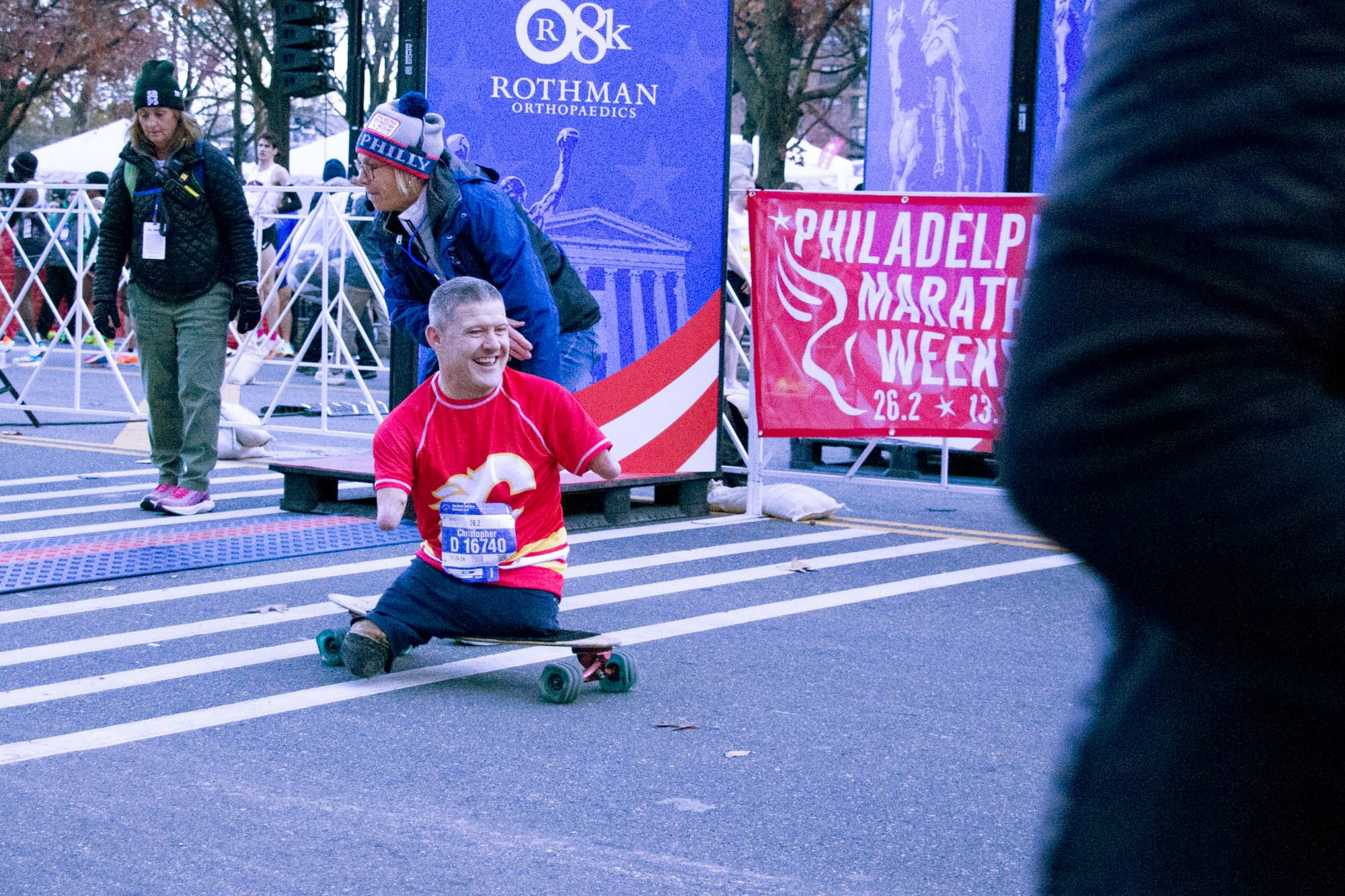
Koch was born without full arms and legs, yet seeks humor and adventure in his life. [Julia Doyle photos]
“If you can’t laugh at life, what can you laugh at?” Chris says. “It keeps life light, especially on a frustrating or challenging day, just making yourself or somebody else laugh. It brings you up.”
Yet one of his favorite jokes came on the day he was born. A family member called his grandma to let her know that Chris was a happy and healthy baby, except he was missing his arms and legs. Without missing a beat, the story goes, his grandma said, “Well, Bruce (his father), never did finish anything he started.”
“That,” Chris says today, “set the tone for my life.”
Chris was born with shortened arms extending to where his elbow would be. His left leg ends at the bottom of his hip, while his right extends to about knee level, with a partially developed foot pointing backward.
“Kids always ask me why my foot points backwards,” Chris says, “and I’m like, ‘Well, maybe I’m backwards and my foot is pointing the right direction.’”
Doctors have never determined why Chris was born without fully grown arms and legs. No, his mom wasn’t exposed to chemicals on the family farm. No, he didn’t suffer from side effects of thalidomide, a sedative used to treat morning sickness in the mid-1900s that caused severe congenital disabilities. And no, his parents aren’t related.
What Chris knows is that he wasn’t treated any differently by family and friends. He helped his grandpa run tractors and combines on the family farm. He swam in lakes and played sports. As he got older, he played Ding Dong Ditch — known in Canada as Nicky Nicky Nine Door — with his friends.
One night after returning home, Chris’ mom asked him if he was out dinging and ditching.
Who, Chris? The self-proclaimed “shit disturber” who loves playing pranks?
No way!
Funny, his mom told him, because the whole neighborhood called saying they saw him.
Busted!
It’s not like in his town of 1,500 people there were many kids without arms and legs scurrying away after knocking on a door.
“That’s where my life of crime ended,” Chris says with a laugh.
Growing up working on a farm taught Chris a lot about life. Growing up and working on a farm without arms and legs taught Chris a lot about adapting and overcoming challenges.
“In agriculture, you can whine and cry about the weather; you can whine and cry about the price of grain. It’s not going to change. You get off your ass and get to work and get it done,” he says. “And that’s been my mantra. You can whine and cry about not having arms and legs, but that’s not going to change anything. So, get off your ass and do something about it.”
Chris has made a life of doing just that. Now 45, he is a world traveler, having backpacked solo through Europe and visited 37 countries on six continents. He’s a motivational speaker, sharing his If I Can message with thousands about how he’s adapted to the life given to him. He’s a marathoner, having completed 20 races with his trusty longboard.
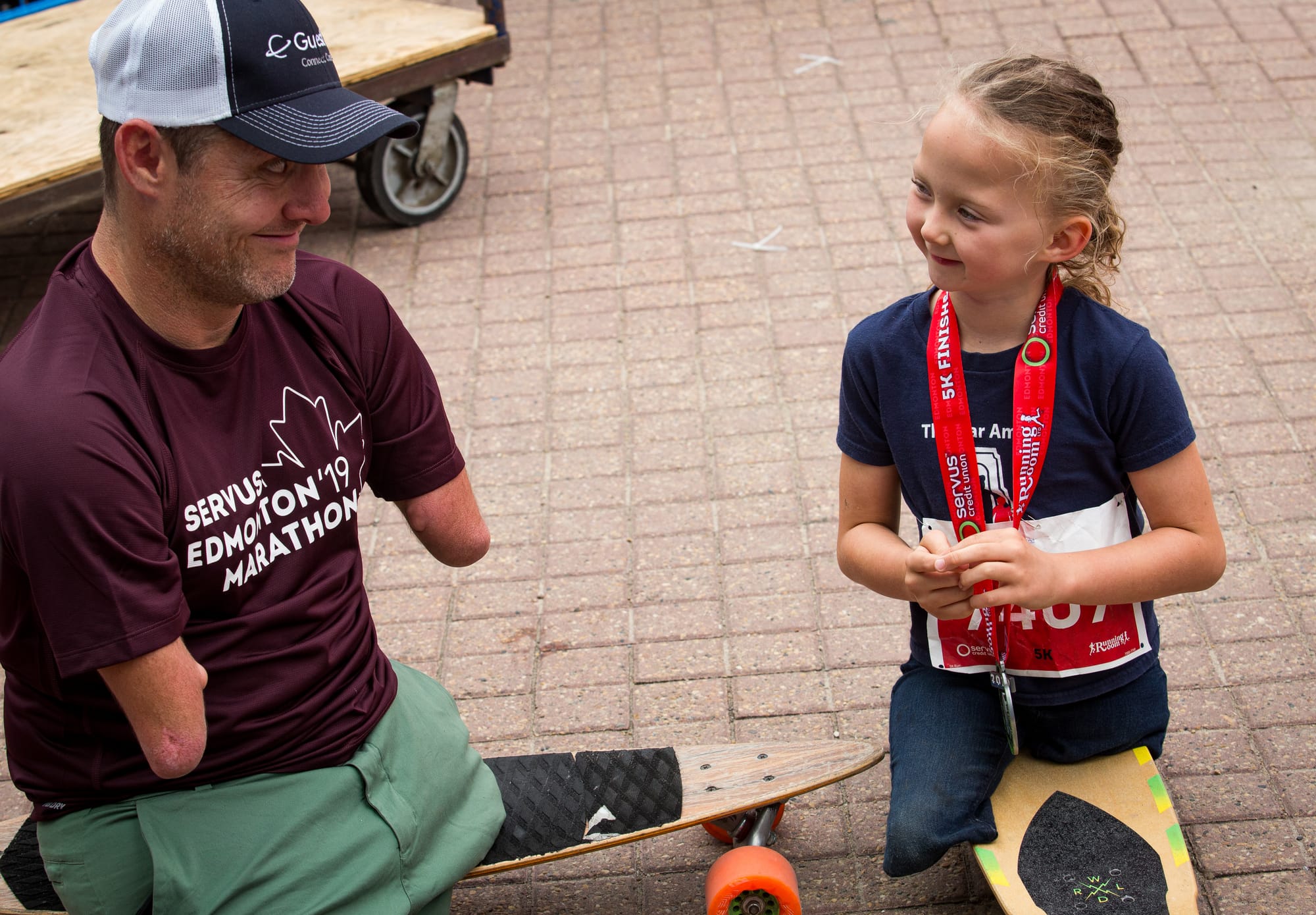
The longboard is Chris’s secret weapon. Equipped with all-terrain wheels that look more like squares than circular wheels, Chris can cruise through the snowy sidewalks back home, between airports and hotels while traveling, or along trails and dirt paths while training for his next 26.2-mile race.
Chris picked it up by happenstance while visiting Florida for an aviation course. He thought it would be fun to cruise along the beach when he soon realized how much ground he covered. He had never moved so far so fast before, even with prosthetic legs, which he found cumbersome and uncomfortable.
Though he failed the course, the longboard helped him become a brand new man. All of which proves an important life lesson he’s learned: “Some of our greatest moments where we’ve learned the most in life have come out of moments that we’ve failed,” he says. “I’m way more afraid of regret than failure. Failure is not a bad thing.”
The first marathon of Chris’s life was supposed to be in Los Angeles. He enjoyed Southern California living, where he boarded with the breeze along the Pacific Ocean instead of dealing with the harsh winters back home. He was living with a girlfriend then, and the two chose to do a cutesy, coupley Valentine’s Day marathon. The Los Angeles Marathon ran a schtick that couples could each run 13.1 miles. As a courtesy, Chris contacted the race director to let them know he would be using a longboard — given he has no arms and legs and all.
Instead, Chris says, the race director told him he couldn’t participate. The reasoning: If they allowed one person in on a longboard, they’d have to welcome anyone in with a board. Chris felt slighted. It wasn’t like he was a punk kid who wanted to skateboard.
Word got back to his hometown. A local news station interviewed the race director for the Calgary Marathon, who said Chris would be welcome to come home and compete. He accepted the invitation — either out of anger, spite, or perhaps out to prove to himself that he could conquer a 26-mile race.

And he did! He loved the cheering crowds and felt so elated at the finish line that he knew he couldn’t be one and done. Soon came the invitations to others with more cheering crowds and confidence and pride and personal growth.
Today, he’s completed marathons on four continents, including the Philadelphia Marathon this past weekend, which he finished in 4 hours and 16 minutes.
Part of his drive to compete is to stay in shape, but it’s also to prove during presentations that he’s still out there accomplishing these remarkable feats. And if he can get out there and race 26.2 miles or longboard with refugees in Nepal or climb 1,776 steps of the CN Tower in Canada, then why can’t you or me?
Today, there’s not much that Chris can’t do. He lives independently and manages everything from making dinners to washing his clothes to grocery shopping. When he’s on the road, he often travels solo and manages traversing through airports or checking into hotels or exploring foreign cities.
He’s learned that most everyday tasks require 10 times more effort than a non-disabled person. And he’s learned that taking a trip — either to the store or across the world — requires more planning than most to account for stairs and other obstacles.
There are, of course, things that still prove difficult. ATMs are tricky because the controls sit so high and Chris doesn’t have fingers to pull out his card. Cutting his food has its challenges, too.
All that hasn’t deterred him from leading a busy life. Instead, he’s learned to overcome by asking for help from a stranger at the ATM — “I’m a very trusting person,” he says — or learning to use an ironing board in a hotel room to help adjust the shower head.
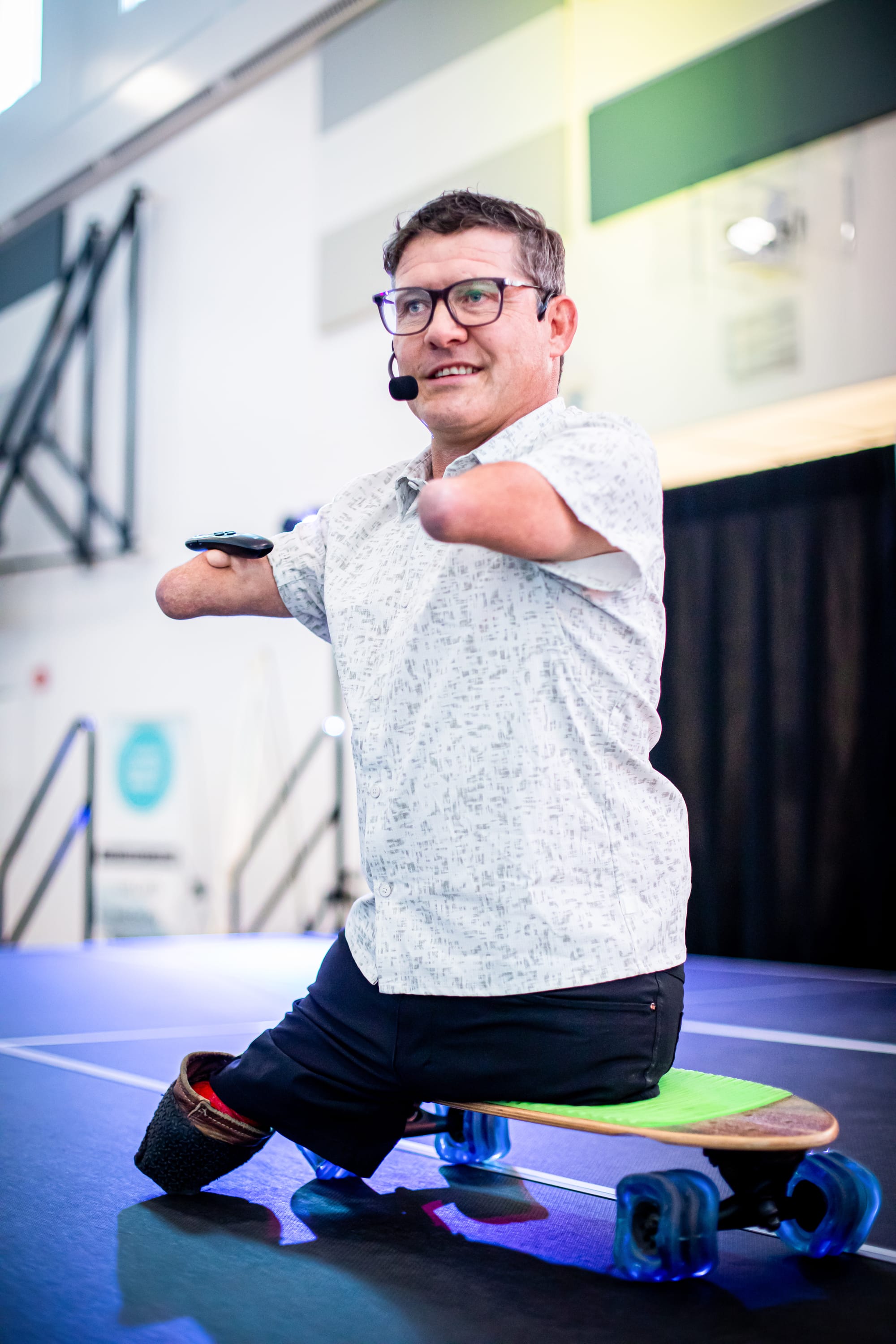
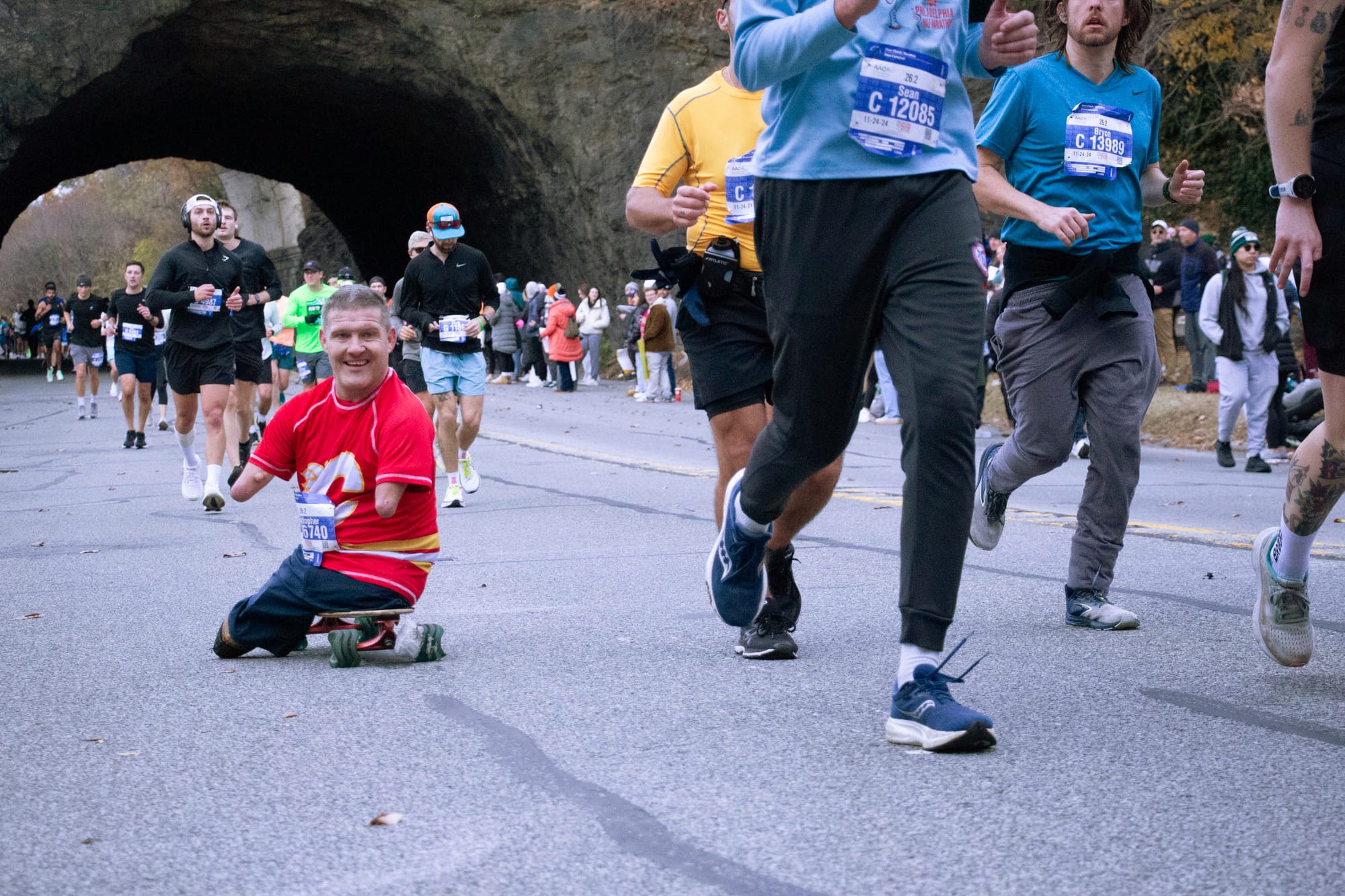
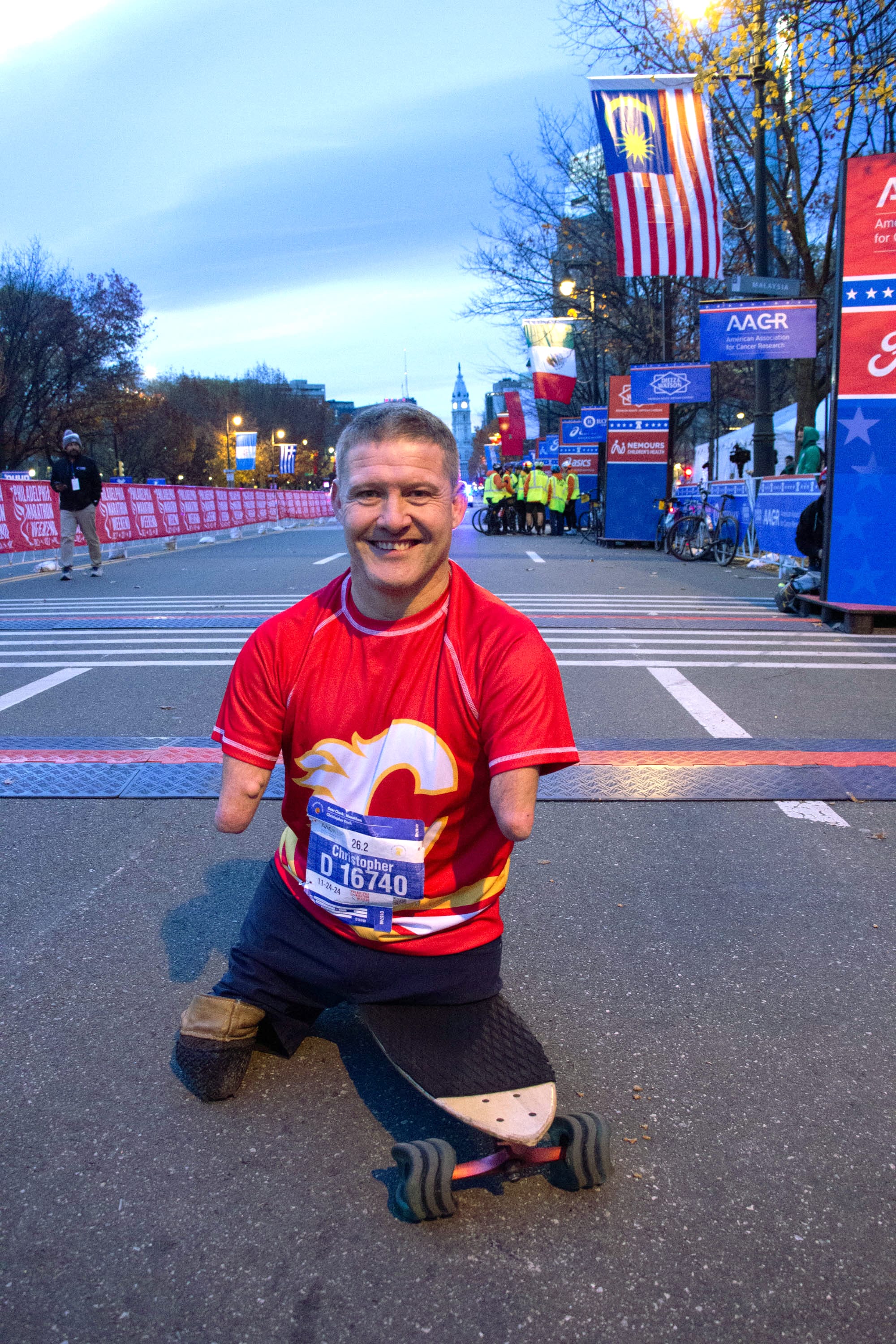
As a motivational speaker, Koch is reaching audiences young and old. His message tends to resonate. [Tyler Sirman and Julia Doyle photos]
“You push through those tougher moments,” he says. “And more often than not, there’s a good story — maybe even a funny story — that comes out of it, too.”
He’s on the road more than he’s home these days. As a motivational speaker, he travels to elementary schools to speak to the next generation or to major corporations like Google, spreading his message that anything is possible if you can get the six inches between your ears right.
He enjoys the hustle that comes with traveling and the adventures it brings. But that’s not to say he doesn’t like to detach himself from society, too, and return to the solitude on the farm where he tends the fields with his family, where there’s always bound to be a good joke.
